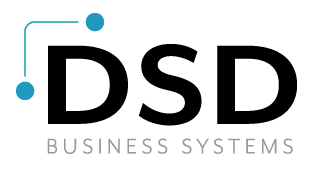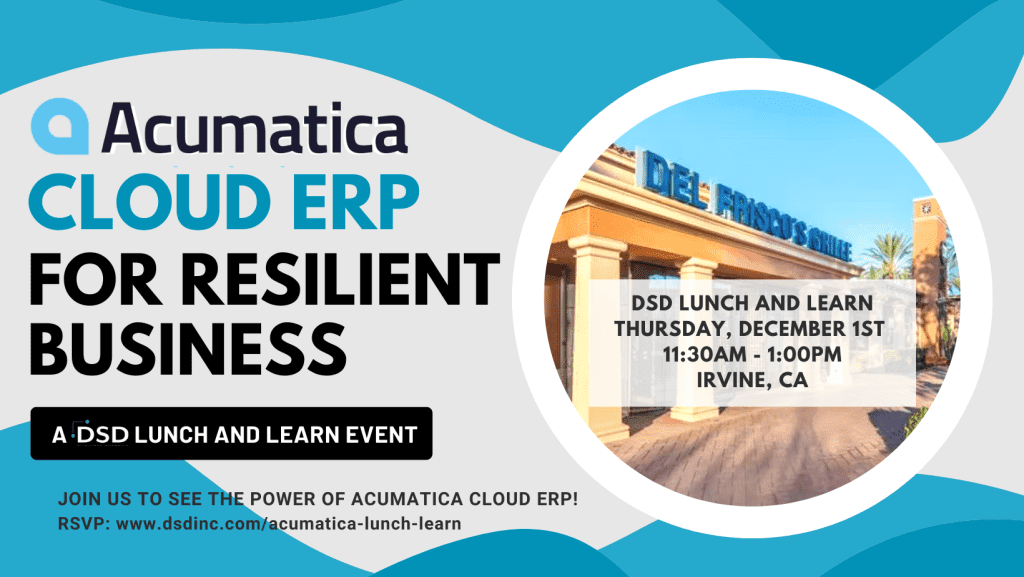Take Control of Your Control Accounts
Take Control of Your Control Accounts
Clients rely on their integrated ERP system for everything from processing sales orders, tracking inventory, and managing cash to various reports including financial statements. Many owners and managers have become accustomed to waiting for the infamous “month end close” to find out how the numbers look. Keeping control accounts visible and verified on a daily basis will allow you to know where you stand on these key numbers, and reduce the stress of the month end close.
What are Control Accounts?
A control account is a summary account in  the general ledger, supported by a subsidiary ledger. In an integrated ERP system, since every transaction updates both the subsidiary and the control account, the control account and subsidiary account should always be in balance, right? The simple answer is yes. Then why do we receive calls for help when the accounts don’t balance? There are several reasons these accounts may not be in balance. The most common reason is when the control account is used to record other transactions that do not flow through the subsidiary ledger. For example, it does not affect a customer or vendor account, inventory, or cash. Generally, reviewing the control account transactions will reveal the culprits and the remedy is readily apparent.
the general ledger, supported by a subsidiary ledger. In an integrated ERP system, since every transaction updates both the subsidiary and the control account, the control account and subsidiary account should always be in balance, right? The simple answer is yes. Then why do we receive calls for help when the accounts don’t balance? There are several reasons these accounts may not be in balance. The most common reason is when the control account is used to record other transactions that do not flow through the subsidiary ledger. For example, it does not affect a customer or vendor account, inventory, or cash. Generally, reviewing the control account transactions will reveal the culprits and the remedy is readily apparent.
What are the Control Accounts in an ERP System?
Let’s start with Cash. My father, a CPA, always taught me that Cash is King! If Cash isn’t right, then everything else on the financial statement is questionable. Next is Accounts Receivable and Accounts Payable. It makes sense that you need to know who owes you and who you owe money to at all times, as shown by unpaid invoices. If you’re a distributor or manufacturer, you’ll have Inventory and Work in Process. These two accounts represent the amount of raw materials, finished goods, and the cost value of products still in the production process. Finally, and one that is often overlooked, is Purchases Clearing, or the cost of materials received into inventory that are not yet invoiced by the vendor. These six control accounts generally account for 90% or more of the total transactions in the general ledger.
How do you keep Control Accounts under Control?
ERP systems have reports to ensure that the subsidiaries reconcile to the control account.
| Control Account(s) | Module | Report |
| Cash (bank accounts) | Bank Reconciliation or Cash Management | Bank Reconciliation Register or similar report |
| Accounts Receivable | Accounts Receivable | Aging or Trial Balance |
| Accounts Payable | Accounts Payable | Aging or Trial Balance |
| Inventory | Inventory Management | Valuation Report or Trial Balance |
| Work in Process * | Work Order | WIP Recap |
| Purchases Clearing | Purchase Order | Purchases Clearing |
*For a contractor, this may be Work in Progress in the Job Cost module
There may be other accounts, while not control accounts, that should be viewed more often than month end, such as Credit Card Clearing (if you have integrated merchant processing), Accrued Payroll and Tax Withholding and Accruals (with or without in-house payroll), and Fixed Assets (if you have in-house fixed asset accounting).
Show Me the Money!
Too often,  owners and managers trust that the control accounts are correct, as presented on financial statements and don’t look at the subsidiaries. More than once, we have assisted clients only to discover irregularities that routine monitoring of the control accounts and subsidiaries would have prevented. I recommend using a Daily Flash Report to show the control accounts relevant to your business, enhance it with comparative sales data, and other KPI’s. Not only will you have a better feel for your numbers and trends, it sends a message to everyone that you are watching and that there is high value in the reliability of the control accounts. Further, the “month end close” will be less stressful and contain less surprises. Keeping control of your control accounts is a great way to maintain control of your company’s finances while making your CPA, bank, and investors comfortable you have things “under control”.
owners and managers trust that the control accounts are correct, as presented on financial statements and don’t look at the subsidiaries. More than once, we have assisted clients only to discover irregularities that routine monitoring of the control accounts and subsidiaries would have prevented. I recommend using a Daily Flash Report to show the control accounts relevant to your business, enhance it with comparative sales data, and other KPI’s. Not only will you have a better feel for your numbers and trends, it sends a message to everyone that you are watching and that there is high value in the reliability of the control accounts. Further, the “month end close” will be less stressful and contain less surprises. Keeping control of your control accounts is a great way to maintain control of your company’s finances while making your CPA, bank, and investors comfortable you have things “under control”.
Written by Bob Pfahnl, General Manager at DSD San Jose

























